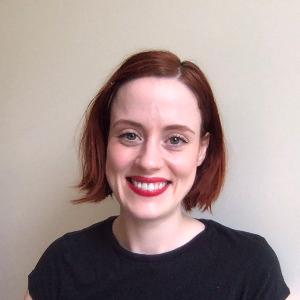Summary
Unprecedented innovation and insight comes when individuals of disparate backgrounds come together to discuss scientific challenges.
Description
Description
Last year, a viral Facebook post revealed something that many experts and scientists would never have expected: A professional hairstylist and 30-year teacher of cosmetology had a foolproof method to determine which of three images of a woman was generated by AI. Among the thousand+ comments from folks all around the world, including technologists, machine learning experts, and engineers, her significant experience working with women in a professional capacity in aesthetics--not in data science--allowed her to lend unique insight into one of the hardest problems in AI: detecting fakes.
Here's the problem: Would she have normally been included in a discussion around the most pressing problems in AI?
Unfortunately, the answer is no.
By and large, science is siloed and heavily guarded. Even most journal articles are kept behind paywalls, despite being written thanks to public funding. Some conferences are invitation-only. Only certain people are allowed to be part of the conversation around science, and only ideas from certain people are given credibility, even though experts in disparate professions and varied experience might have deep insight that can be applied to scientific challenges.
We propose a way to correct this critical problem. We will build an accessible online community that would include and respect individuals' experiences in a series of guided conversations, Q&A, AMA (Ask Me Anything), experiments, and exercises. The focus will be on bringing awareness of the relevant scientific challenges, discussion of possible solutions, and empowerment of citizen scientists who can add outside expertise to our worlds' most challenging problems. From schoolchildren to seniors, we will use this community to provide a bridge between scientific experts and the public so that everyone can be part of the conversation.
Who will take these actions?
We would like to create a collaborative community which would be an alternative to the typical article-and-comment-section or 140-character social media pontification. We will work with scientists in various disciplines to create a series of hands-on activities for participants, host discussions, and generate conversations. For example, we might ask journalists to write a story using GPT-3, a new text generating language model, and share their thoughts on the technology and how it may impact their lives. We may provide an AMA on mRNA vaccines so participants can have their questions about the technology answered by professionals in real-time. We may ask linguists to present some of the top challenges in their field -- maybe a physicist or a pharmacist has an insight they can share. We may ask the public to find and post photos of a specific species of invasive weed so that ecologists and biologists can track its spread. There are many possibilities that we can use to engage participants to foster cross-discipline collaboration and empower citizen scientists of all ages.
Although we envision much of the activity to take place online, we know that not all audiences will engage in this type of format. For this reason, we would like to explore other media-related possibilities -- TV, print media, radio syndication, and (hopefully in the future) in-person events.
What are the projected costs?
We anticipate there will be set-up costs involved in the creation and execution of the collaborative, including community management and the design, PR & outreach, and creation of media.
Timeline
We anticipate set-up, planning and scoping will take several months, and that the collaborative will need some continued maintenance after set-up, which could be several years or more, depending on the traction we get.
About the author(s)
Briana Brownell
Briana Brownell is a data scientist turned tech entrepreneur, investor, futurist and innovator. Widely considered a visionary technologist, she is a frequent keynote speaker, expert and author, known for making highly technical topics accessible to non-experts, as well as leading a thoughtful technical discussion on the science behind AI. She has published more than a dozen academic papers, spoken at conferences around the world, been interviewed and profiled by top media outlets, created evidence-based policy research for government and non-profit organizations, and given guest lectures at numerous colleges and universities.
Bronwyn Syiek
Bronwyn is an entrepreneurial executive and experienced Board Director with a reputation for driving profitable growth, problem solving and creativity. Her expertise in analytics, strategy, policy development, executive management, financial audit and board governance informs all her work. Her deep reservoir of relationships in the Silicon Valley is enhanced by her excellent understanding of how it operates. Currently, Bronwyn is a Board Member of The SETI Institute (Audit & Governance committees) and a former board member of QuinStreet (NASDAQ: QNST) and the Hillsborough Schools Foundation.
 Cat B. Smith Jan 15, 2021 06:03 | I'm a grad student in computer science with a non-traditional background, and the idea that "science is siloed and heavily guarded" rings true with my experiences. We have to include more people in problem-solving discussions, not only because it's the right thing to do, but also because we're missing out on so many creative solutions. |
